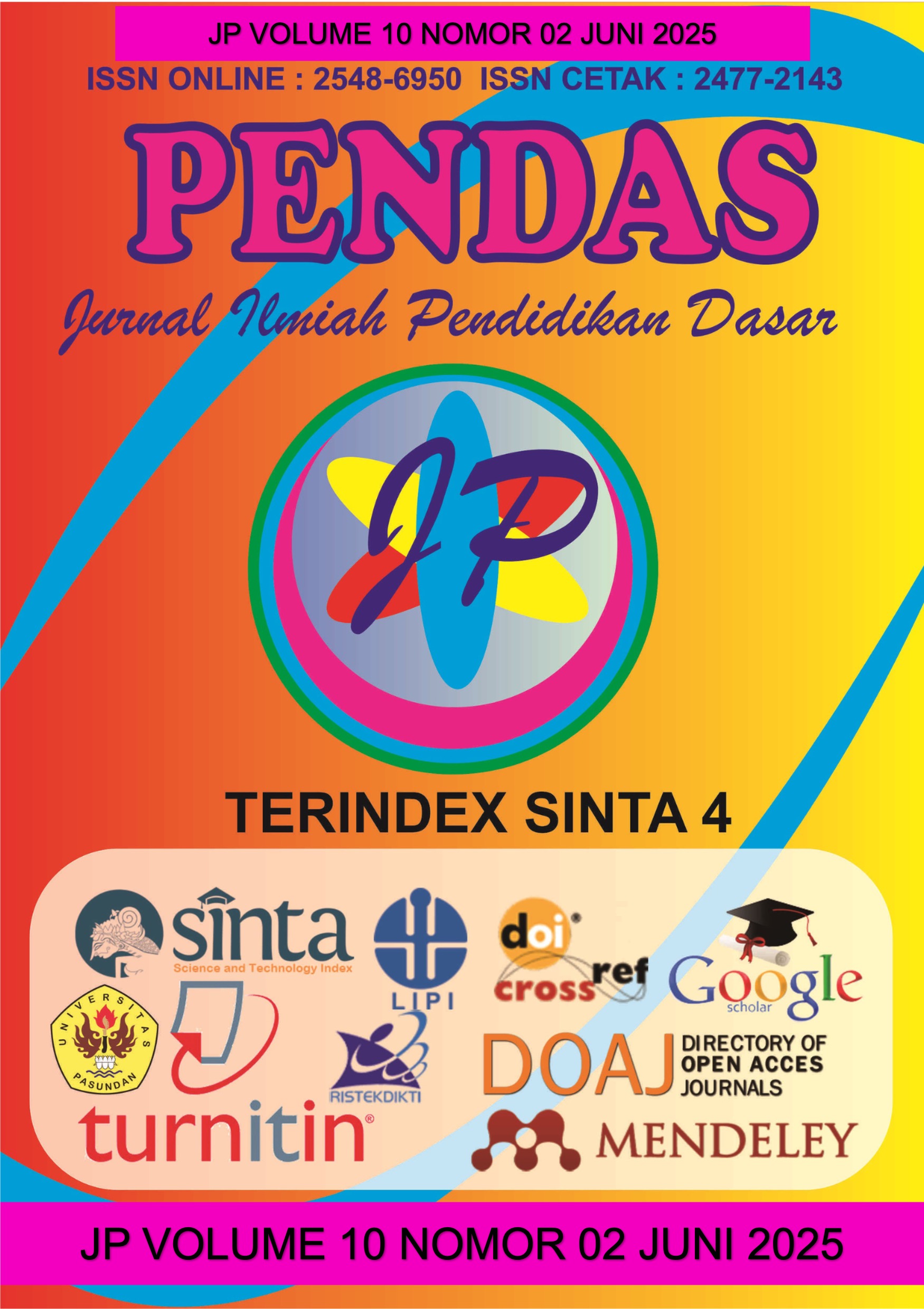EVEKTIFITAS PEMBELAJARAN PROBLEM BASED LEARNING TERHADAP PRESTASI BELAJAR BAHASA INDONESIA PADA SISWA KELAS II SD N KRAPYAK WETAN BANTUL
DOI:
https://doi.org/10.23969/jp.v10i02.26273Keywords:
problem-based learning model; learning achievementAbstract
The purpose of this study is to test the effectiveness of problem based learning in order to improve student learning achievement in Indonesian language subjects in grade II students of SD N Krapyak Wetan Bantul, the type of research used by the researcher in this study is the Quasi-experimental method with the Nonequivalent Control Group Design. This study covers two classes, namely the control class that applies teacher-centered learning and the experimental class that uses problem-based learning. The research sample that the researcher took included Class II A consisting of 25 students as the control group and Class II B consisting of 26 students as the experimental group, Test questions in the form of pre-test questions, post-test questions and documentation are data collection techniques and independent sample t-test is data analysis. Then after implementing learning with Problem Based Learning there was a significant increase in student learning achievement, in the control class the average post-test results were only 62.52, in the experimental class there was a very significant increase with the average post-test results reaching 77.38. Based on data analysis with hypothesis testing using independent sample t-test, a significance value (2-tailed) of 0.000 <0.05 was obtained, which means H0 is rejected and H1 is accepted. Thus, it is concluded that Problem Based Learning is effective in improving learning achievement in Indonesian Language Lessons for grade II students at SD N Krapyak Wetan Bantul.
Downloads
References
Andriyani Mudrikah, “Problem Based Learning as Part of Student-Centered Learning,” Social, Humanities, and Educational Studies (SHEs): Conference Series 3, no. 4 (2021): 1, https://doi.org/10.20961/shes.v3i4.53237.
M. Taufiq Amir, “Inovasi Pendidikan Melalui Problem Based Learning.,” 2021, hal 22.
Ni Komang Ayu Wahyuni, I Made Citra Wibawa, and I Kadek Agus Sudiandika, “Implementasi Model Pembelajaran PBL (Problem Based Learning) Terhadap Hasil Belajar Tematik (Muatan Pelajaran Bahasa Indonesia),” Jurnal Ilmiah Pendidikan Profesi Guru 4, no. 2 (2021): 230–39, https://doi.org/10.23887/jippg.v4i2.36088.
Siti Maulida, “Perencanaan Pembelajaran: Pengertian, Fungsi Dan Tujuan,” OJS, Karimah Tauhid 3 (2024): 6014–23.
Sugiyono, (2015),”Metode Penelitian Kuantitatif, Kualitatif, dan R&D”, Bandung : ALFABETA.
Sugiyono, (2015),”Metode Penelitian Kuantitatif, Kualitatif, dan R&D”, Bandung : ALFABETA.
Uswatun Hasanah, Sarjono Sarjono, and Ahmad Hariyadi, “Pengaruh Model Problem Based Learning Terhadap Prestasi Belajar IPS SMP Taruna Kedung Adem,” Aksara: Jurnal Ilmu Pendidikan Nonformal 7, no. 1 (2021): 43, https://doi.org/10.37905/aksara.7.1.43-52.2021.
Yulia Uni, “Mengembangkan Hasil Belajar Entry Jurnal Melalui Model Project Based Learning Di SMP,” Jurnal Pembelajaran Prospektif 6, no. 2 (2021): 81–93, https://jurnal.untan.ac.id/index.php/lp3m/article/view/49564.
Zuyyinatul Aslach and Yunita Sari, “Rata-Rata Nilai Pre Test Yang Diperoleh Kelas,” Jurnal Ilmiah Pendidikan Dasar VII, no. 1 (2020): 30–43.
Downloads
Published
Issue
Section
License
Copyright (c) 2025 Pendas : Jurnal Ilmiah Pendidikan Dasar

This work is licensed under a Creative Commons Attribution 4.0 International License.














































